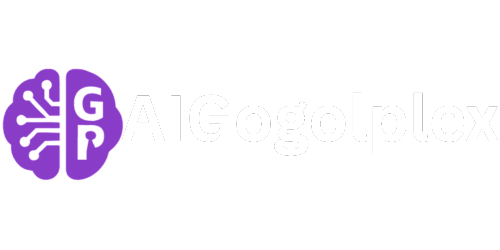What if better patient care didn’t require more staff just smarter tools? In today’s healthcare landscape, AI chatbots for patient follow-up are becoming the unsung heroes. They offer instant, personalized support without overburdening your team. Curious how this tech can upgrade your practice? Let’s dive in and discover the power of automation in patient care.
Why Patient Follow-up Matters More Than Ever
Good healthcare doesn’t end after the appointment. In fact, it often begins there. Patients frequently forget instructions, skip medications, or avoid returning for follow-up care. That’s where patient follow-up becomes critical it improves outcomes, builds trust, and keeps treatment plans on track. But here’s the catch: traditional follow-up methods are time-consuming, expensive, and inconsistent.
The Rise of AI Chatbots in Modern Healthcare
Enter AI chatbots. These digital assistants are reshaping the way care teams interact with patients after their visits. Unlike overloaded staff, chatbots can respond instantly, 24/7, without ever needing a break. They can send appointment reminders, check symptoms, collect feedback, and even suggest next steps all while maintaining a consistent, friendly tone.
And it’s not just a trend. According to insights from How AI is Transforming Healthcare, smart automation like this is no longer optional it’s becoming the gold standard.
Key Benefits of Using AI Chatbots for Follow-up Care
Around-the-Clock Availability
Imagine a patient waking up at 2 a.m. with a question about their medication. Instead of waiting for office hours, they can get an instant answer from a chatbot trained on verified medical data. This kind of access reduces anxiety and increases satisfaction and it’s scalable for any practice size.
Consistency and Reduced Human Error
Even the best medical staff can miss a call or forget a follow-up. Chatbots? Never. They follow scripts perfectly, ask the right questions, and log everything making compliance and audits a breeze.
Personalized, Data-Driven Interactions
Modern AI platforms don’t just send generic messages. They can tailor follow-up based on the patient’s condition, past behavior, or risk level. For example, a diabetic patient may receive weekly nutrition check-ins while a surgery patient gets wound care reminders.
If you’re exploring tools that enable this level of customization, some affiliate solutions like HealthBot Platform Pro offer fully integrated AI modules for clinics and hospitals.
Common Concerns About Chatbots in Healthcare
| Feature | AI Chatbot | Human Staff |
|---|---|---|
| Availability | 24/7 | Business Hours |
| Cost | Low | High (salaries) |
| Consistency | Always | Varies |
Can Chatbots Really Understand Patients?
This is a fair concern. However, thanks to natural language processing (NLP), today’s bots can handle varied sentence structures, respond to emotional cues, and escalate complex issues to a human seamlessly. They’re not replacing doctors; they’re amplifying them.
Data Privacy and Security Issues
Privacy is paramount in healthcare. Good chatbot platforms are HIPAA-compliant and encrypt patient data end-to-end. It’s vital to choose vendors who prioritize security and have transparent privacy policies. Platforms like AI-Powered Diagnostic Tools often emphasize how encryption and safety are built into the system architecture.
Real-World Examples of Chatbot Follow-up Success
In a mid-size clinic in Chicago, implementing an AI chatbot resulted in a 33% decrease in missed appointments and a 2x increase in patient feedback submissions. Another private practice saw medication adherence rise by 24% in just two months after switching to automated follow-ups.
Curious about broader AI applications? You might find this article helpful: The Truth About AI’s Role in Everyday Life.
How to Implement an AI Chatbot System Effectively
Choose the Right Platform and Vendor
Not all chatbots are created equal. Look for a solution tailored to healthcare one that supports integration with EHRs, supports multilingual patients, and has medical-grade conversational scripts. Some reliable platforms offer demo accounts or “try before you buy” options a great way to evaluate fit before you commit.
Train the Bot with Real Patient Data
Customization is key. Use historical patient interactions, common FAQs, and physician-approved guidance to shape your chatbot’s responses. The more relevant the training data, the more helpful the bot becomes.
Some providers offer affiliate programs when you refer their bot solutions making it easy to monetize while improving care. Check out the feature-rich, HIPAA-compliant bots from ChatMed Solutions for a solid starting point.
Best Use Cases for AI Chatbots in Follow-up

Not sure where to begin with AI chatbots? These use cases are already delivering real results across clinics and hospitals:
- Chronic Care Management: Chatbots can regularly check in with patients managing diabetes, hypertension, or asthma reminding them about medications, appointments, or lifestyle changes.
- Post-Discharge Check-ins: After surgery or hospitalization, bots can monitor symptoms, answer recovery questions, and flag red flags early reducing readmissions.
- Mental Health Support: For patients in therapy or on medication, chatbots can send mood check-ins, journal prompts, or even escalate urgent responses when needed.
- COVID or Flu Symptom Tracking: Chatbots can help pre-screen patients, track symptoms over time, and advise on isolation or treatment saving time for both staff and patients.
Looking to activate a chatbot for any of these use cases? Platforms like HealthBot Platform Pro offer pre-built templates tailored to each scenario, making setup a breeze.
The Future of AI Chatbots in Patient Engagement
The future is proactive. AI bots will not just follow up but anticipate care needs before patients ask. They’ll monitor recovery progress, alert physicians to red flags, and even coordinate next steps across providers.
As seen in AI in Special Education Support, AI isn’t just automating it’s humanizing digital care. In follow-up scenarios, this means better outcomes, lower costs, and happier patients.
“Automated follow-up tools like AI chatbots can reduce readmission rates by up to 25%.” HealthTech Weekly
Conclusion
AI chatbots are more than just digital helpers they’re transforming how follow-up care is delivered. With faster responses, fewer missed steps, and personalized interactions, they’re helping healthcare providers deliver outstanding care at scale. Ready to elevate your patient experience? Explore the best AI chatbot platforms today and take the first step toward smarter care delivery.

